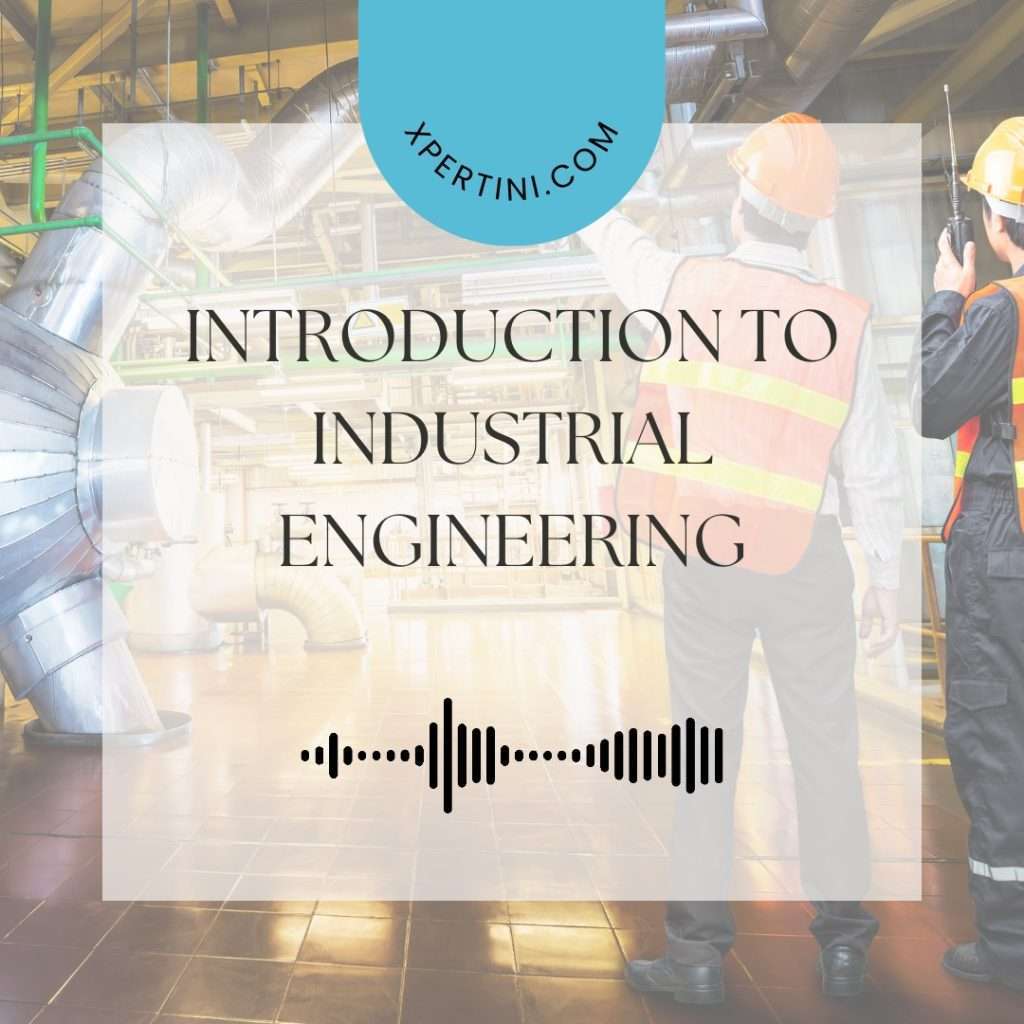Introduction to Industrial Engineering
Course Summary
Industrial engineering is a multifaceted discipline that delves into optimizing processes, systems, and resources across various industries. Throughout this course, learners explore the field of industrial engineering, gaining insights into its diverse applications, methodologies, and career prospects. From enhancing manufacturing efficiency to streamlining supply chain logistics, industrial engineers play a pivotal role in driving organizational success and innovation.
The course begins by introducing foundational concepts in industrial engineering, including process optimization, systems analysis, and resource management. Learners delve into the principles of lean manufacturing, Six Sigma methodologies, and quality management systems, understanding how these frameworks contribute to operational excellence and continuous improvement.
As the course progresses, learners explore advanced topics such as industrial automation, robotics, and artificial intelligence, gaining insights into cutting-edge technologies reshaping modern industries. They examine the applications of automation in manufacturing, logistics, and healthcare, recognizing its potential to revolutionize production processes and enhance productivity.
Throughout the course, learners acquire practical skills through exercises, case studies, and industry-relevant projects. They develop proficiency in using tools and software commonly employed in industrial engineering, preparing them for real-world challenges and opportunities in the field.
Furthermore, the course provides valuable insights into emerging trends and industry developments, equipping learners with the knowledge to adapt to evolving market demands and technological advancements. By staying informed about industry trends, learners can position themselves as competitive professionals ready to tackle complex challenges and drive organizational growth.
Overall, this course offers a comprehensive overview of industrial engineering, providing learners with the knowledge, skills, and insights needed to excel in this field. Whether aspiring to enter the workforce or seeking to advance their careers, learners emerge from the course equipped with the tools and expertise to make meaningful contributions to organizations across various sectors.
Course Overview
This course provides a foundational understanding of industrial engineering principles and practices, essential for those pursuing careers in this field or seeking to enhance their knowledge in applied science. Through a combination of theoretical concepts and practical applications, students will gain insight into optimizing processes, improving efficiency, and enhancing productivity within various industries.
Course Objectives
- Understand the fundamental concepts and principles of industrial engineering.
- Analyze and evaluate industrial processes to identify areas for improvement.
- Apply mathematical and statistical methods to solve industrial engineering problems.
- Demonstrate proficiency in utilizing technology and software tools relevant to industrial engineering.
- Develop critical thinking and problem-solving skills applicable to real-world industrial scenarios.
Course Outcomes
- Define the scope and significance of industrial engineering in modern industries.
- Demonstrate proficiency in analyzing and optimizing production processes.
- Apply mathematical models to quantify and improve system performance.
- Utilize software tools for simulation and modeling in industrial engineering.
- Evaluate the impact of technology advancements on industrial processes.
- Develop solutions for enhancing workplace safety and ergonomics.
- Apply quality control methods to ensure product and process reliability.
- Demonstrate effective communication skills for collaborating within interdisciplinary teams.
- Explore sustainability practices in industrial engineering.
Course Audience
- Students pursuing degrees in engineering, particularly industrial engineering or related fields.
- Professionals seeking to enhance their knowledge and skills in industrial engineering.
- Anyone interested in understanding the principles and applications of industrial engineering in various industries.

